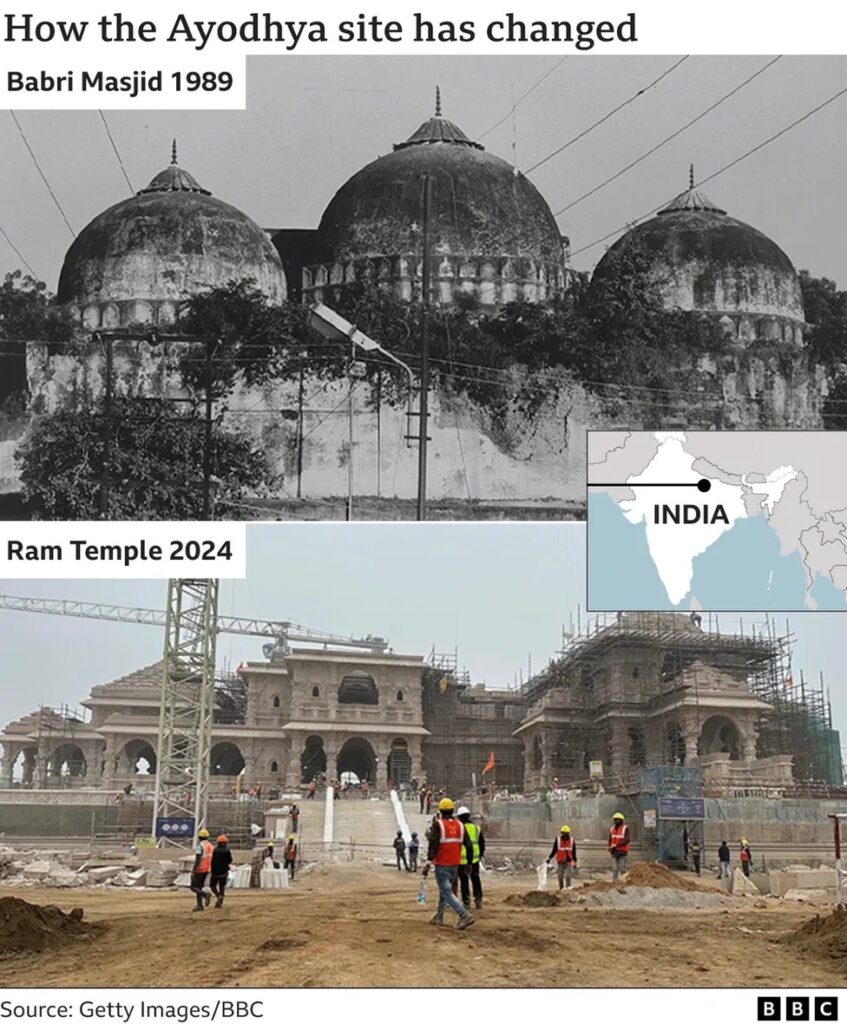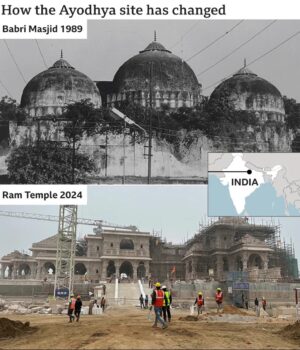In a solemn ceremony, India’s Prime Minister Narendra Modi is set to inaugurate the grand temple dedicated to Lord Ram in Ayodhya, a site that once housed the 16th Century Babri Masjid. This symbolic event, scheduled for Monday, reignites the contentious history surrounding the religious fault-line that has long divided the nation.

The construction of the temple follows the dark chapter of December 6, 1992, when tens of thousands of Hindu men, including individuals like Mr Dubey, a self-proclaimed “kar sevak” or religious worker, were involved in the demolition of the Babri Masjid. The incident resulted in widespread violence, claiming thousands of lives and leaving an indelible mark on independent India’s history.
Mr Dubey, reflecting on his role in the demolition, asserts that his actions were a religious duty and not a crime. In his view, the construction of the temple was a divine mission that he and others like him were destined to fulfill. This sentiment underscores the complex interplay between religious fervor and the principles of a secular constitution.
The upcoming temple inauguration is not merely a religious event; it is also being viewed as the informal beginning of Prime Minister Modi’s re-election campaign. The move is seen as an attempt to appeal to India’s Hindu majority, and millions across the nation are gearing up to celebrate the occasion as a grand festival.
However, for India’s largest minority, the Muslims, the day carries painful memories and fears. The site’s divisive history has left them apprehensive, prompting some to send their children away from the city to avoid potential tensions. The apprehension among Muslims is rooted in the belief that the influx of Hindu devotees from different parts of the country may spark trouble.
As the grand temple prepares to open its doors, the ceremony symbolizes more than just a religious moment – it serves as a reminder of the deep-rooted fault lines that have, for decades, shaped the complex dynamics of religious coexistence in India.










